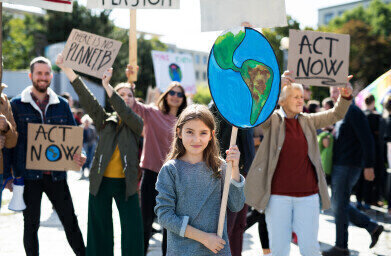Fuel for Thought
Will COP28 be a step backwards for climate action?
Dec 07 2023
The upcoming COP28 summit raises significant questions about the effectiveness and integrity of international climate negotiations, particularly in light of the increasing participation of fossil fuel industry representatives. This article examines whether COP28 could potentially mark a regressive step in global climate action, considering the complex interplay of political, economic, and environmental factors.
At the heart of the controversy surrounding COP28 is the record number of delegates linked to the fossil fuel industry. Compared to previous conferences, the number of attendees from coal, oil, and gas industries has seen an unprecedented increase. This shift raises concerns about the potential influence of these industries on the conference's outcomes, especially regarding discussions on reducing reliance on fossil fuels.
While the increase in fossil fuel-linked delegates can be partly attributed to more transparent registration processes, this transparency also exposes the depth of the industry's involvement in climate talks. The question arises: does the presence of these delegates represent a conflict of interest that could hinder meaningful progress in climate action?
The leadership of COP28 has also come under scrutiny. Sultan Al Jaber, the COP president, holds a significant position in the UAE's state oil company, raising questions about his ability to impartially steer the summit towards aggressive climate goals. His statements and the reactions they have elicited from climate activists and other leaders reflect the complexities and sensitivities surrounding the fossil fuel debate at COP28.
The significant uptick in the presence of lobbyists linked to fossil fuels at COP28 cannot be overlooked. Their potential influence on the negotiations and outcomes could skew the conference's focus away from aggressive climate action. This increased lobbyist presence raises the alarm about the integrity of the COP process and the possibility of outcomes being influenced by vested interests rather than scientific imperatives.
COP28 occurs in a global context where the urgency of climate action is increasingly recognized, yet economic and geopolitical realities often dictate a slower transition away from fossil fuels. Developing countries, in particular, face the challenge of balancing development needs with environmental sustainability. The perspectives of various stakeholders, including those most vulnerable to climate change, are crucial in these discussions.
Scientific consensus underscores the need for rapid and significant reduction in fossil fuel usage to meet global climate targets. However, the debate at COP28 seems to be mired in how to achieve this transition, with differing views on the role of technologies like carbon capture and storage (CCS) and the pace of phasing out fossil fuels.
The direction COP28 takes in terms of commitments to phase out or phase down fossil fuels will be pivotal. A strong commitment could signal a significant step forward in global climate action, while a weaker commitment could be seen as a setback, influenced by the growing presence of fossil fuel interests.
Any outcomes from COP28 must consider the principles of equity and justice, recognizing the differentiated responsibilities and capabilities of countries. The summit offers an opportunity to address not only the environmental aspects of climate change but also the social and economic dimensions, ensuring a just transition for all.
As the world watches, the actions and decisions made at COP28 will be a litmus test for the world's commitment to addressing climate change. The presence of a large number of fossil fuel industry representatives casts a shadow over the summit, raising critical questions about whether COP28 can maintain the integrity and ambition required to effectively combat climate change. The outcomes of this conference will have far-reaching implications for global climate policy and action in the years to come.
Digital Edition
PIN 25.3 June/July
June 2024
Analytical Instrumentation - Recent Advances In Various Bench Scale Accelerated Oxidative Testing Methods For Fuels - Petrochemical Industry: Anton Paar Solutions Streamline Processes, Reduce H...
View all digital editions
Events
Jul 30 2024 Jakarta, Indonesia
Jul 30 2024 Jakarta, Indonesia
China Energy Summit & Exhibition
Jul 31 2024 Beijing, China
Jul 31 2024 Chengdu, China
Aug 05 2024 Moon Township, PA, USA


















